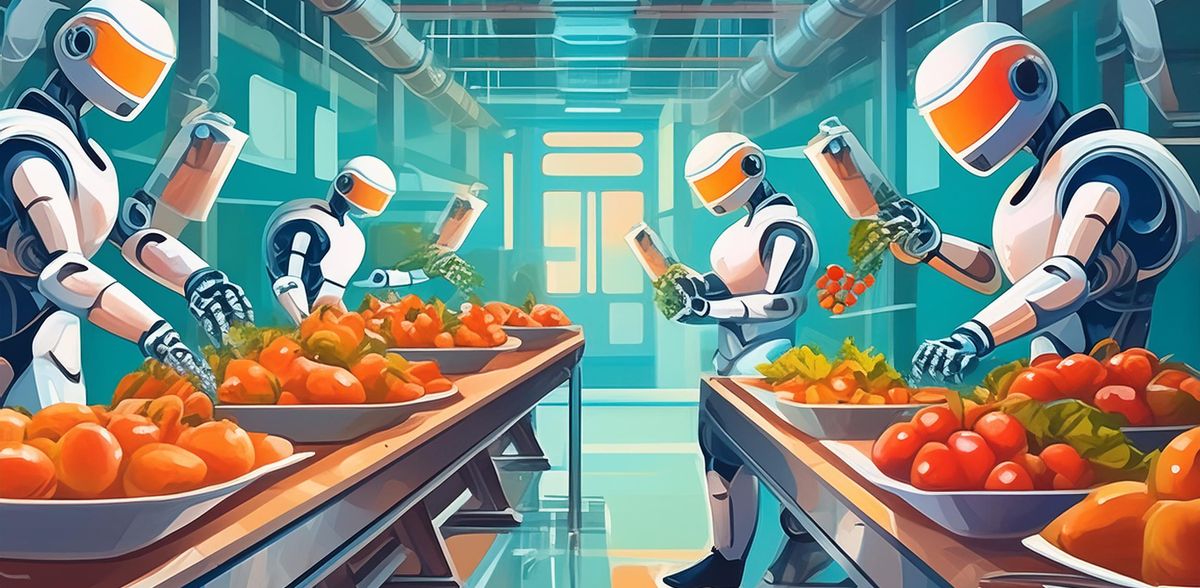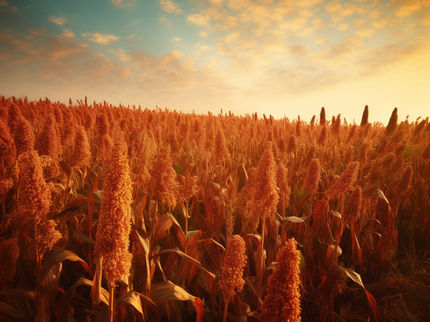Artificial intelligence for the agricultural and food industry
Closing event of the BMEL-funded AI projects and X-KIT at Fraunhofer IESE
Advertisement
On April 25 and 26, 2024, the official closing event of the AI projects funded by the Federal Ministry of food and Agriculture (BMEL) took place at the Fraunhofer Institute for Experimental software Engineering IESE in Kaiserslautern. The event was jointly organized by the BMEL, the Federal Office for Agriculture and Food (BLE) and the networking and transfer project "X-KIT: Gaia-X and AI projects: Transfer and Networking" jointly organized the event.

Closing event of the BMEL-funded AI projects and X-KIT at Fraunhofer IESE
Fraunhofer IESE
Under the consortium leadership of Fraunhofer IESE, the X-KIT project accompanied the 36 AI research projects of the BMEL as a networking and transfer project. The AI projects and the specialist and technical clusters from X-KIT presented their results at the closing event. More than 180 representatives from the fields of agriculture, the food chain, nutrition and rural areas took the opportunity to find out about the potential of digitalization and artificial intelligence for their domains. The event offered a program of presentations and a project fair, which also allowed for an intensive exchange with the experts.
Potential for farms, consumers and environmental protection
"In order to achieve added value from agricultural data, the data must be evaluated. Numerous AI technologies are now available for this purpose. Farmers can be supported in making decisions for their business in order to maximize operational success, but also to reduce the burden on the environment and monitor animal welfare. For consumers, this means that they receive information about the production of their food. We can achieve traceability along the entire agricultural value chain," says MinDirig'n Prof. Dr. Engel Friederike Arkenau, sub-department head and digitalization officer of the BMEL.
"A total of 66 prototypes for agriculture and food have been developed in the AI projects, 10 patents and over 100 other collaborations have been created. The relevance for the economy is demonstrated by the fact that 45 commercial enterprises and 13 start-ups are involved. This is a great success," adds RDirin Dr. Elke Saggau, BLE Group Leader, Group 32 Agricultural Production, Digitalization, Consumer Protection.
X-KIT enters the second round: "Agriculture" for Gaia-X
In the second sub-project of X-KIT, the "Agriculture" domain is being further developed in GAIA-X - a project to establish a European data infrastructure for sovereign data exchange. The aim is to promote knowledge transfer and develop use cases in order to demonstrate the potential applications of Gaia-X for the agriculture and food sector. X-KIT also offers support to the 36 funded AI projects to implement Gaia-X components in their applications.
"Data spaces and GAIA-X are abstract terms, but to put it simply, in the past people tried to bring data into a shared platform, but now there is a new approach. In the data rooms, the data remains with the people or organizations from which it originated and is still stored in the systems in which it was originally stored. Nevertheless, they can be exchanged if the various stakeholders, such as farmers or companies, wish to do so. This is a trend that is emerging in all sectors. However, this new technology has not yet been extensively researched in the agricultural sector. And this is exactly what we at Fraunhofer IESE are doing together with KTBL and all other project partners in the X-KIT project," explains Prof. Dr.-Ing. Jörg Dörr, part of the extended institute management of Fraunhofer IESE and project manager of X-KIT.
Project partners:
Fraunhofer IESE, Kuratorium für Technik und Bauwesen in der Landwirtschaft (KTBL), Fraunhofer IAIS, Fraunhofer IGD, Fraunhofer IGP, Fraunhofer IFF, Fraunhofer IOSB
Note: This article has been translated using a computer system without human intervention. LUMITOS offers these automatic translations to present a wider range of current news. Since this article has been translated with automatic translation, it is possible that it contains errors in vocabulary, syntax or grammar. The original article in German can be found here.
Other news from the department science
Most read news
More news from our other portals
See the theme worlds for related content
Artificial intelligence (AI) for food and beverages
Artificial intelligence (AI) is optimizing the food and beverage industry through automated quality control and more accurate demand forecasting. AI plays a particularly important role in product development by analyzing taste preferences and market trends. This allows new products to be developed that are better tailored to consumer needs, increasing efficiency and customer satisfaction.

Artificial intelligence (AI) for food and beverages
Artificial intelligence (AI) is optimizing the food and beverage industry through automated quality control and more accurate demand forecasting. AI plays a particularly important role in product development by analyzing taste preferences and market trends. This allows new products to be developed that are better tailored to consumer needs, increasing efficiency and customer satisfaction.




























































